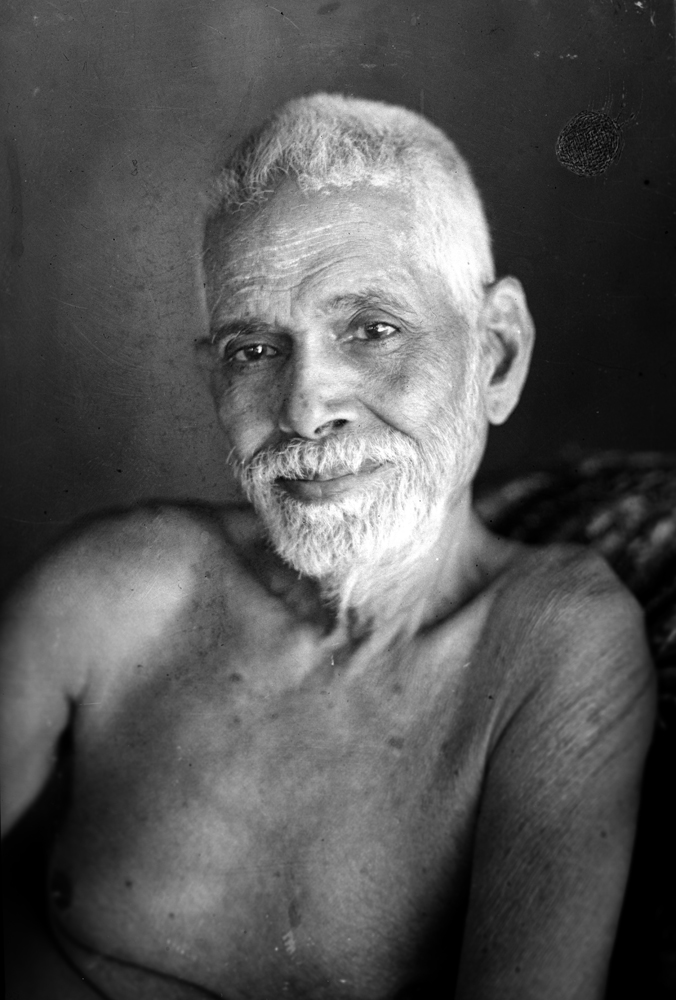totalcel
Self-banned
-
- Joined
- Nov 20, 2021
- Posts
- 1,119
What is the explanation of all plurality, of all numerical diversity of existence? Time and Space. Indeed it is only through the latter that the former is possible: because the concept "many" inevitably connotes the idea either of succession (time), or of relative position (space). Now, since a homogeneous plurality is composed of Individuals, I call Space and Time, as being the conditions of multiplicity, the principium individuationis (the principle of individuation); and I do not here pause to consider whether this expression was exactly so employed by the Schoolmen.
If in the disclosures which Kant's wonderful acumen gave to the world there is anything true beyond the shadow of a doubt, this is to be found in the Transcendental Aesthetics, that is to say, in his doctrine of the ideality of Space and Time. On such solid foundations is the structure built that no one has been able to raise even an apparent objection. It is Kant's triumph, and belongs to the very small number of metaphysical theories which may be regarded as really proved, and as actual conquests in that field of research. It teaches us that Space and Time are the forms of our own faculty of intuition, to which they consequently belong, and not to the objects thereby perceived; and further, that they can in no way be a condition of things in themselves, but rather attach only to their mode of appearing, such as is alone possible for us who have a consciousness of the external world determined by strictly physiological limits. Now, if to the Thing in itself, that is, to the Reality underlying the kosmos, as we perceive it, Time and Space are foreign; so also must multiplicity be. Consequently that which is objectivated in the countless phaenomena of this world of the senses cannot but be a unity, a single indivisible entity, manifested in each and all of them. And conversely, the web of plurality, woven in the loom of Time and Space, is not the Thing in itself, but only its appearance-form. Externally to the thinking subject, this appearance-form, as such, has no existence; it is merely an attribute of our consciousness, bounded, as the latter is, by manifold conditions, indeed, depending on an organic function.
The view of things as above stated,—that all plurality is only apparent, that in the endless series of individuals, passing simultaneously and successively into and out of life, generation after generation, age after age, there is but one and the same entity really existing, which is present and identical in all alike;—this theory, I say, was of course known long before Kant; indeed, it may be carried back to the remotest antiquity. It is the alpha and omega of the oldest book in the world, the sacred Vedas, whose dogmatic part, or rather esoteric teaching, is found in the Upanishads. There, in almost every page this profound doctrine lies enshrined; with tireless repetition, in countless adaptations, by many varied parables and similes it is expounded and inculcated. That such was, moreover, the fount whence Pythagoras drew his wisdom, cannot be doubted, despite the scanty knowledge we possess of what he taught. That it formed practically the central point in the whole philosophy of the Eleatic School, is likewise a familiar fact. Later on, the New Platonists were steeped in the same, one of their chief tenets being: (All souls are one, because all things form a unity.) In the ninth century we find it unexpectedly appearing in Europe. It kindles the spirit of no less a divine than Johannes Scotus Erigena, who endeavours to clothe it with the forms and terminology of the Christian religion. Among the Mohammedans we detect it again in the rapt mysticism of the Sûfi. In the West Giordano Bruno cannot resist the impulse to utter it aloud; but his reward is a death of shame and torture. And at the same time we find the Christian Mystics losing themselves in it, against their own will and intention, whenever and wherever we read of them!* *The Cantico del Sole by St. Francis of Assisi sounds almost like a passage from the Upanishads or the Bhagavadgîtâ.
Now if plurality and difference belong only to the appearance-form; if there is but one and the same Entity manifested in all living things: it follows that, when we obliterate the distinction between the ego and the non-ego, we are not the sport of an illusion. Rather are we so, when we maintain the reality of individuation,—a thing the Hindus call Mâyâ, that is, a deceptive vision, a phantasma. The former theory we have found to be the actual source of the phaenomenon of Compassion; indeed Compassion is nothing but its translation into definite expression. This, therefore, is what I should regard as the metaphysical foundation of Ethics, and should describe it as the sense which identifies the ego with the non-ego, so that the individual directly recognises in another his own self, his true and very being. From this standpoint the profoundest teaching of theory pushed to its furthest limits may be shown in the end to harmonise perfectly with the rules of justice and loving-kindness, as exercised; and conversely, it will be clear that practical philosophers, that is, the upright, the beneficent, the magnanimous, do but declare through their acts the same truth as the man of speculation wins by laborious research, by the loftiest flights of intellect. Meanwhile moral excellence stands higher than all theoretical sapience. The latter is at best nothing but a very unfinished and partial structure, and only by the circuitous path of reasoning attains the goal which the former reaches in one step. He who is morally noble, however deficient in mental penetration, reveals by his conduct the deepest insight, the truest wisdom; and puts to shame the most accomplished and learned genius, if the latter's acts betray that his heart is yet a stranger to this great principle,—the metaphysical unity of life.
If in the disclosures which Kant's wonderful acumen gave to the world there is anything true beyond the shadow of a doubt, this is to be found in the Transcendental Aesthetics, that is to say, in his doctrine of the ideality of Space and Time. On such solid foundations is the structure built that no one has been able to raise even an apparent objection. It is Kant's triumph, and belongs to the very small number of metaphysical theories which may be regarded as really proved, and as actual conquests in that field of research. It teaches us that Space and Time are the forms of our own faculty of intuition, to which they consequently belong, and not to the objects thereby perceived; and further, that they can in no way be a condition of things in themselves, but rather attach only to their mode of appearing, such as is alone possible for us who have a consciousness of the external world determined by strictly physiological limits. Now, if to the Thing in itself, that is, to the Reality underlying the kosmos, as we perceive it, Time and Space are foreign; so also must multiplicity be. Consequently that which is objectivated in the countless phaenomena of this world of the senses cannot but be a unity, a single indivisible entity, manifested in each and all of them. And conversely, the web of plurality, woven in the loom of Time and Space, is not the Thing in itself, but only its appearance-form. Externally to the thinking subject, this appearance-form, as such, has no existence; it is merely an attribute of our consciousness, bounded, as the latter is, by manifold conditions, indeed, depending on an organic function.
The view of things as above stated,—that all plurality is only apparent, that in the endless series of individuals, passing simultaneously and successively into and out of life, generation after generation, age after age, there is but one and the same entity really existing, which is present and identical in all alike;—this theory, I say, was of course known long before Kant; indeed, it may be carried back to the remotest antiquity. It is the alpha and omega of the oldest book in the world, the sacred Vedas, whose dogmatic part, or rather esoteric teaching, is found in the Upanishads. There, in almost every page this profound doctrine lies enshrined; with tireless repetition, in countless adaptations, by many varied parables and similes it is expounded and inculcated. That such was, moreover, the fount whence Pythagoras drew his wisdom, cannot be doubted, despite the scanty knowledge we possess of what he taught. That it formed practically the central point in the whole philosophy of the Eleatic School, is likewise a familiar fact. Later on, the New Platonists were steeped in the same, one of their chief tenets being: (All souls are one, because all things form a unity.) In the ninth century we find it unexpectedly appearing in Europe. It kindles the spirit of no less a divine than Johannes Scotus Erigena, who endeavours to clothe it with the forms and terminology of the Christian religion. Among the Mohammedans we detect it again in the rapt mysticism of the Sûfi. In the West Giordano Bruno cannot resist the impulse to utter it aloud; but his reward is a death of shame and torture. And at the same time we find the Christian Mystics losing themselves in it, against their own will and intention, whenever and wherever we read of them!* *The Cantico del Sole by St. Francis of Assisi sounds almost like a passage from the Upanishads or the Bhagavadgîtâ.
Now if plurality and difference belong only to the appearance-form; if there is but one and the same Entity manifested in all living things: it follows that, when we obliterate the distinction between the ego and the non-ego, we are not the sport of an illusion. Rather are we so, when we maintain the reality of individuation,—a thing the Hindus call Mâyâ, that is, a deceptive vision, a phantasma. The former theory we have found to be the actual source of the phaenomenon of Compassion; indeed Compassion is nothing but its translation into definite expression. This, therefore, is what I should regard as the metaphysical foundation of Ethics, and should describe it as the sense which identifies the ego with the non-ego, so that the individual directly recognises in another his own self, his true and very being. From this standpoint the profoundest teaching of theory pushed to its furthest limits may be shown in the end to harmonise perfectly with the rules of justice and loving-kindness, as exercised; and conversely, it will be clear that practical philosophers, that is, the upright, the beneficent, the magnanimous, do but declare through their acts the same truth as the man of speculation wins by laborious research, by the loftiest flights of intellect. Meanwhile moral excellence stands higher than all theoretical sapience. The latter is at best nothing but a very unfinished and partial structure, and only by the circuitous path of reasoning attains the goal which the former reaches in one step. He who is morally noble, however deficient in mental penetration, reveals by his conduct the deepest insight, the truest wisdom; and puts to shame the most accomplished and learned genius, if the latter's acts betray that his heart is yet a stranger to this great principle,—the metaphysical unity of life.







